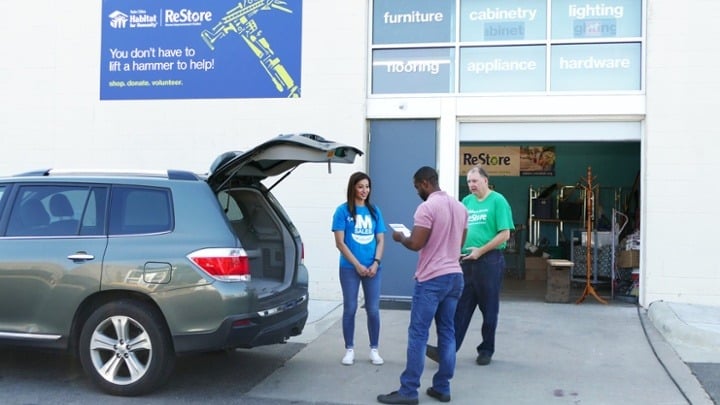Benefits of a tax deductible charitable donation
It's that time of year once again folks. Yep, tax season! Although it's too late to benefit from a tax deductible charitable donation for 2010, this...
2 min read
 Twin Cities Habitat for Humanity
:
2:49 PM on April 11, 2024
Twin Cities Habitat for Humanity
:
2:49 PM on April 11, 2024

One of the benefits of making monetary or physical donations (besides the warm fuzzy feeling you get) is the ability to claim a tax deduction. But what exactly do you need to be able to claim this deduction? Here are a few tips to help you navigate this tax filing.
Before you claim donations on your taxes, it's important to determine if your donations are worth itemizing. To do this, you need to determine if the value of your donations exceeds the standard deduction for your filing status. The 2023-2024 standard deductions are as follows:
Those numbers are subject to change for other tax seasons. If your donations do not exceed the standard, you will not claim your donations.
When you itemize your tax deductions on your return, you can take an income tax deduction for a donation to a 501(c)(3) charitable organization. Example: If you are in the 25% tax bracket, you would save $250 on a $1,000 tax-deductible donation to Twin Cities Habitat for Humanity.
Not all charitable donations are accepted by the IRS. Donations need to be made to a qualified charitable organization that has tax-exempt status. Here are some ways to determine if an organization is accepted by the IRS:
Keep in mind that churches, mosques, synagogues, and temples are considered by the IRS as de facto, meaning they are eligible for claiming donation tax deductions even if they are not listed (although there are some exceptions).
While you don’t need to submit a receipt when claiming donation tax deductions on your tax return, you will need one if you are audited. Also, donations of $250 or more can only be claimed if you have an acknowledgment of your donation from the charity.
Any legitimate charitable organization will happily give you a receipt to make claiming donation tax deductions easy, and if they don’t, be sure to ask for one.
Acknowledgments and receipts need the date, amount of the donation, and the name of the charity to substantiate your donation. Store your receipts in a file with all your tax information so it’s easy to locate come tax season.
To claim donations on your taxes, it's important to know how much those donations are worth. But your gently used items don't exactly have price tags on them anymore, and they lost value as soon as you used them once. So, what are your items worth? And how do you figure that out? There's no way to determine the exact value of your items, but there are resources online to help, like this donation valuation guide.
The IRS does not allow nonprofit organizations to set the value of your donation; the donor assigns the value.
Watch a video on how to donate to the TC Habitat for Humanity ReStore locations.
Some employers allow you to contribute to a charity through a payroll deduction. It makes donating easy and automatic, but to claim it on your tax return, you’ll need pay stubs, a W2 with the donation amount and charity listed, or some other documentation from your employer that shows how much you donated and what organization received the donation.
If you donate your time by volunteering to a charity, you can’t claim it as a deduction. The IRS doesn’t recognize volunteer time as a charitable contribution mainly because it’s not quantifiable. However, you can deduct expenses paid out of pocket that are related to volunteer work as long as those expenses were not reimbursed or can be considered personal expenses.
Your gift unlocks bright futures! Donate now to create, preserve, and promote affordable homeownership in the Twin Cities.

It's that time of year once again folks. Yep, tax season! Although it's too late to benefit from a tax deductible charitable donation for 2010, this...

Among the many reasons why people give to organizations like Twin Cities Habitat for Humanity, there is a bonus by means of a tax deduction. By far...

December 31st is a red letter day. That’s the last day of the year to donate goods to the Habitat for Humanity ReStore and earn a tax deduction....